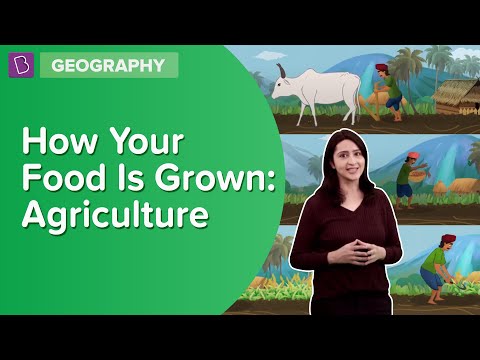Table of Contents
- Introduction
- What Is Organic Farming?
- Types of Organic Farming
- Nutrient Management in Organic Farming
- Weed and Pest Management
- Disease Management
- Advantages of Organic Farming
Introduction
Once, India was a self-sustainable country and its backbone was agriculture. Agriculture can be defined as the art of growing food crops and cash crops needed by man. This has passed through a series of phases. Agricultural practices and technologies have grown rapidly and the selection of farming methods totally depends on the financial condition of the farmer. The ultimate aim of all these farming practices is to achieve better and higher yields. Agriculture can be either sustainable agriculture, industrial agriculture or organic agriculture. In this section, we will discuss organic farming.

What Is Organic Farming?
It is the practice of farming or raising crops and other livestock without using any inorganic chemical fertilizers, pesticides or any other genetically modified organisms. With organic farming, the productivity of the farming fields is enhanced along with economic growth, thus promising a sustainable environment. Nowadays, farmers are aware of the harmful and toxic effects of fertilizers and other chemicals used. As a result, they started to rely on organic farming. It has many benefits over other farming practices. They are eco-friendly and help to reduce soil infertility and soil erosion issues. It also promotes a healthy lifestyle.
For More Information On Agriculture, Watch The Below Video:

Types of Organic Farming
Organic farming is primarily of two types, namely:
- Pure organic farming
- Integrated organic farming
Pure organic farming involves avoiding all artificial chemicals. Every fertilizer or pesticide that is used is derived from completely natural sources such as blood meal or bone meal.
Integrated organic farming involves integrating techniques aimed at achieving ecological requirements and economic demands such as integrated pest management and nutrient management.
Nutrient Management in Organic Farming
Organic farming follows a healthy way of farming for both crops as well as consumers. In this method, composted organic manure is used for the nutrition of crops and thus, improves the organic content and fertility of the soil. Apart from manures, bacterial and fungal biofertilizers are also used for enhancing the nutrients in the soil.
Weed and Pest Management
Crop rotation, mixed cropping, organic control, and hand weeding are the other techniques used in organic farming to maintain soil fertility and for pest and weed control. These systems of pest and weed management and soil protection make organic farming the best method. Sometimes, natural or other organically approved insecticides like neem pesticides are also used.
Disease Management
Diseases can be a major concern for organic farmers as they might reduce crop yields. So, supplying important macro and micronutrients and adopting crop rotation is crucial to prevent various plant diseases. Even the soil is enriched with useful microbes, fungi, and bacteria to prevent harmful organisms in check.
Organic fruits and vegetables are not the only examples of successful organic products. Recently, dairy products which are organic are noticeable. Livestock is another example of organic farming. Here, they follow a strict means of farming like animals feed only on organic food only. Hormones or other genetic engineering practices for high yield are not allowed on animals.
Advantages of Organic Farming
- Improves soil fertility and maintains biological diversity.
- Good for the environment and yields are healthy for human and animal consumption.
- Prevents soil erosion, degradation and crop failure.
- Decrease pollution and the whole farming can easily rely on renewable energy sources.
- Improves soil fertility and enhances its chemical and physical properties.
We can thus say that organic farming is a future scope and the best method for farmers which is profitable and rewarding.
Learn more about organic farming or other related topics by logging into BYJU’S.
Further Reading
| Nutrients | Fertilizers Vs Manure |

Comments